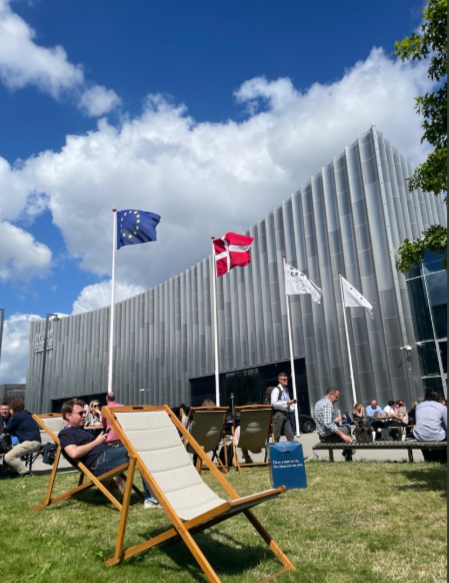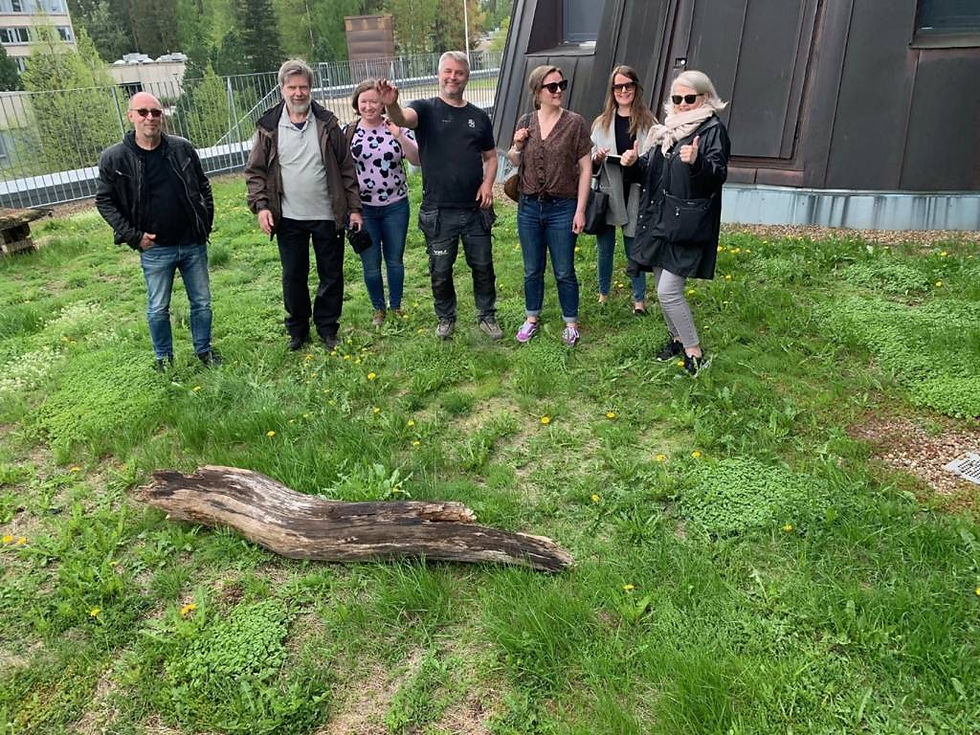Reflections from the Academy of Management Annual Meeting in Copenhagen
- Inka Lappalainen
- Aug 12, 2025
- 3 min read
Inka Lappalainen
Doctoral Researcher
At the end of July, 2025, I participated with Johanna Kujala, Annika Blomberg, Riikka Tapaninaho and Lotta Sihvo-Matikainen in the Annual Meeting of the Academy of Management (AOM) in Copenhagen, Denmark. As one of the leading international conferences in multidisciplinary management research, AOM brought together a record-breaking 13,400 participants this year. The week-long program featured nearly 4,000 sessions. Below I share my reflections from the journey.

The vibrant global AOM community is structured around research-specific Divisions and Special Interest Groups, which foster international collaboration, networking, and knowledge exchange. Our research group has long been active in the forums addressing broad social issues (SIM) and, more recently, in the forum, integrating environmental and organizational research (ONE). Given our current focus on biodiversity, I was particularly drawn to sessions exploring the circular economy, biodiversity, and regenerative business and organizing. In addition to traditional research presentations, the conference offered a rich mix of panel discussions and workshops that provided fresh perspectives on the current and emerging research debates.
Discussions on circular economy (CE) highlighted both opportunities and challenges in ecosystem collaboration, especially regarding business models, capabilities, technologies, and regulation particularly in the context of smart cities. One study introduced four archetypes of circular cities: targeted transformers, holistic reformers, comprehensive integrators, and sectoral improvers. These models illustrated the multi-level interventions and varying sectoral scopes involved in CE practices. A case study on Montreal’s food ecosystem shed light on nested systems where different nodes implement diverse business models through agile adaptation, specialization, and partnerships. The discussions also revealed the bottom-up and regional nature of CE, while concerns were raised about the slowing growth of the CE market and the need for more interdisciplinary and cross-sectoral research.
Further, circular economy was highlighted as a necessary, but not the only strategy to advance sustainability transitions. Biodiversity management and regenerative business strategies emerged as critical research directions, even though most corporate strategies remain focused on minimizing negative environmental and social impacts. Discussions also addressed ontological and epistemological challenges in integrating business and biodiversity research, calling for systemic approaches to measure and manage biodiversity protection and recovery across industries. Data-driven approaches to biodiversity management were also presented, sparking broader interest in this evolving research stream.

Johanna Kujala, as the panelist in one debate, emphasized the importance of stakeholder engagement in corporate biodiversity efforts and advocated for recognizing nature itself as a non-human stakeholder. We also received valuable feedback on our two presentations, which contribute to ongoing debates in biodiversity management and stakeholder theory.
Further, the role of local communities and multi-stakeholder collective action was highlighted as essential in developing and implementing regenerative business models to tackle biodiversity loss and local vitality. Case studies from the Brazilian rainforests, the Arctic Sámi people, and Finnish fishing communities illustrated place-specific co-evolution processes and dependencies across temporal and spatial scales.
The development of incentives for regenerative business models alongside existing economic systems raised critical debate. Agency was encouraged at various societal levels by referring diverse already available solutions that are not necessary scalable on larger scale, but replicable to some extent. To take further steps in advancing regenerative business, ecosystemic changes are required, including institutional, regulatory, and policy reforms. Thus, present management and governance models are also challenged to drive moral societal change, which in current political polarization seen as a significant barrier.

In conclusion, the conference underscored the importance of engaging in long-term systemic change while taking immediate collective action. Circular economy adoption is vital in addressing climate change and biodiversity loss and can promote regenerative business strategies. These complex interconnections call for holistic, multidisciplinary research. A call for an integrative approach was acknowledged, opening up diverse research and collaboration opportunities among scholars, practitioners, NGOs, and policymakers. With its dynamic program and lively summer atmosphere, the Copenhagen AOM Annual meeting was a valuable experience.
Inka Lappalainen
Doctoral researcher




Comments